Leadership
-
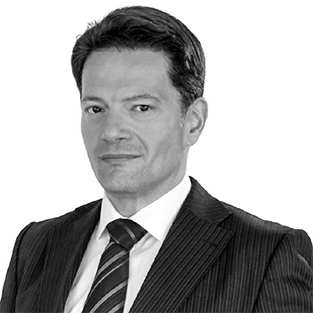 Erik A. FeingoldCEO & Co-founder
Erik A. FeingoldCEO & Co-founderErik A. Feingold is the CEO and Co-founder of FDNA Inc. He previously served as the Senior Advisor to the CEO, and as President & Head of Strategy at Sharecare (NASDAQ: SHCR). He joined Sharecare following the acquisition of his company, FeingoldTech GmbH.
Feingold is a distinguished business leader with over 30 years of experience at the intersection of technology, healthcare, and product innovation. His extensive background includes founding and leading high-growth businesses, managing M&As and integrating acquisitions, overseeing international operations, and contributing to a $4 billion IPO.
-
 Moti ShnibergChairman
Moti ShnibergChairmanMr. Shniberg is an innovator, inventor and serial entrepreneur. He has founded several global technology ventures, including Face.com (acquired by Facebook), CyberMDX (acquired by Forescout) and MutualArt, a leading global art information platform with more than 1 Million subscribers. Mr. Shniberg is the inventor behind many patents, which are at the core of globally used solutions, such as Apple’s smart album and Facebook and Instagram’s image tagging. He is currently the founder and driving force behind Nacre Capital, a global venture builder specialized in creating and scaling start-ups that use deep AI technologies to address fundamental global needs and create significant value for society. Nacre Capital’s portfolio includes FDNA, a world-renowned company helping clinicians identify rare diseases in children, Seed-X developing trait detection and sorting technology for grains and seeds, and Fairtility, delivering solutions to significantly increase the efficiency of IVF & reduce time to live birth.
-
 Karen Gripp, MD, FAAP, FACMGChief Medical Officer
Karen Gripp, MD, FAAP, FACMGChief Medical OfficerDr. Karen Gripp serves as Chief Medical Officer for FDNA. In this role, she implements her clinical expertise and immense breadth of scientific knowledge to promote FDNA’s NGP technologies and enhance the company’s role as a global leader in clinical genomics.
In addition to her role at FDNA, Karen is the Chief of the Division of Medical Genetics at the Nemours Children’s Hospital in Wilmington, DE, and is a Professor of Pediatrics at the S. Kimmel Medical College at T. Jefferson University in Philadelphia, PA. With more than fifteen years of experience, Dr. Gripp is a physician with board certification in pediatrics, clinical genetics, and clinical molecular genetics. Her research interests include RASopathies, craniofacial disorders, novel syndrome delineation, and identification of disease genes.
-
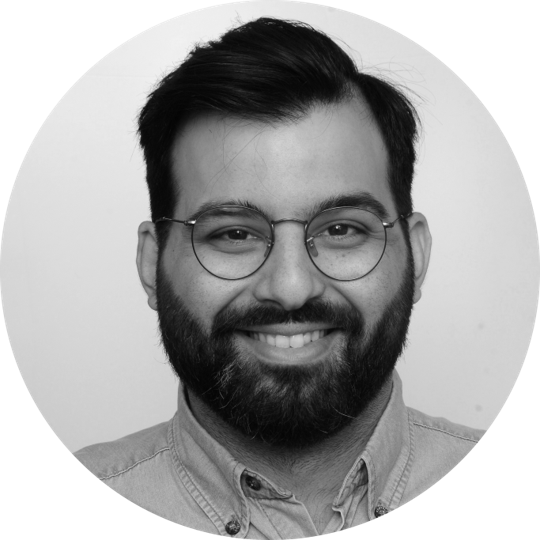 Aviram Bar HaimResearch & AI Executive
Aviram Bar HaimResearch & AI ExecutiveAviram has 10+ years of software R&D experience, most of which in a fast-growing corporation environment. For the last 3 years he was the company’s CTO, and managed the AI and ML activities of FDNA. He holds a Computer Engineering BSc from the Hebrew university of Jerusalem, and a MSc in Computer Engineering from Tel Aviv university.
-
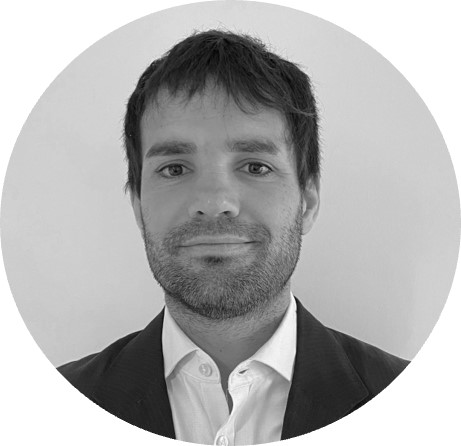 Francisco TassiGeneral Counsel
Francisco TassiGeneral CounselFrancisco is General Counsel at FDNA, where he manages all aspects of the company’s legal operations, advises on deal structures, governance and compliance matters. Prior to joining FDNA in 2021, Francisco worked for more than seventeen years in top tier law firms in Argentina, gaining broad experience in Venture Capital, Corporate Law, M&A, Commercial Contracts, Compliance, Litigation and Dispute Resolution.
Francisco received his J.D. from the University of Buenos Aires (Argentina) and an LLM from Queen Mary University of London (UK). -
 Pierluigi FaillaHead of AI
Pierluigi FaillaHead of AIPierluigi is Director of AI at FDNA, where he leads AI and Machine Learning efforts. He has 15+ years of expertise in field of Data and AI working in large enterprises and successful startups where he managed machine learning and data science teams. He holds a PhD in Information Engineering and MSc in Computer Engineering from University of Siena.
-
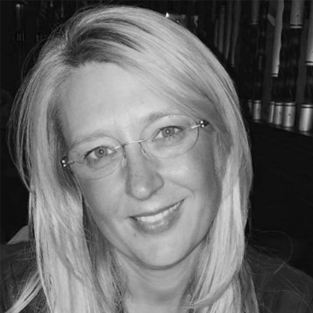 Stefanie EichnerHead of Business Operations
Stefanie EichnerHead of Business OperationsStefanie is the Head of Business Operations at FDNA Inc. She previously served as SVP Product & Technology Operations at Sharecare leading Enterprise implementation, as well as delivering the technologies to support Operation Warp Speed through 2020-2021. She joined Sharecare following the acquisition of FeingoldTech GmbH where she served as Chief Commercial Officer.
Stefanie is an accomplished senior operations executive and corporate strategist, with a proven track record for successful delivery to Fortune 500 clients and consumer markets. She brings 25 years of experience in efficiently rolling out proprietary technologies and leading business operations from self-funded startups to international enterprises.
-
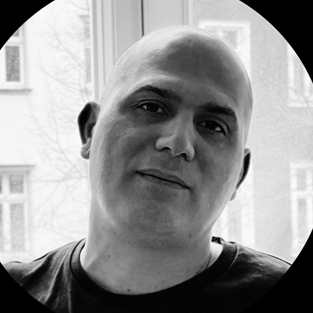 Moshe GabayChief Technology Officer & Chief Product Officer
Moshe GabayChief Technology Officer & Chief Product Officer -
 Sarah SavageHead of Product & Clinical
Sarah SavageHead of Product & Clinical -
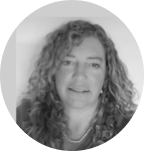 Nicole FleischerHead of Data Sciences & Clinical Research
Nicole FleischerHead of Data Sciences & Clinical ResearchNicole has worked for the past 15 years in product development and research of cutting-edge medical technologies. She is a biologist by training from the Hebrew University in Jerusalem and has an MBA. For the past 8 years, she has been leading the research studies at FDNA, with a focus on next-generation phenotyping (NGP) technologies, and for the past 3, she leads the Face2Gene product.
Scientific Advisory Board
-
Dr. Madhuri HedgePerkinElmer, Inc., Atlanta, GA, USA
-
Dr. David A. Chitayat, FABMG, FACMG, FCCMG, FRCPCSickKids Hospital, Toronto, Canada
Dr. Chitayat is Professor of Paediatrics, Obstetrics and Gynecology, Laboratory Medicine, Pathobiology and Molecular Genetics and the Medical Director of MSc Program in Genetic Counseling at the University of Toronto. Dr. Chitayat is a fellow of the American Board of Medical Genetics, the Canadian College of Medical Genetics and The Royal College of Physicians and Surgeons of Canada. Dr. Chitayat heads the Prenatal Diagnosis and Medical Genetics Program at Mount Sinai Hospital and is practicing Clinical and Metabolic Genetics in The Hospital for Sick Children. His research interests include Cardiac Genetics, Molecular Genetics and Neurogenetics. Dr. Chitayat has published over 15 book chapters and over 300 peer reviewed papers in these fields. Dr. Chitayat has also been an invited visiting professor, and a keynote speaker at national and international universities and institutions.
-
Prof. Jill Clayton-Smith, MB ChB, MRCP, FRCPSt Mary's Hospital, Manchester, England
Prof. Clayton-Smith is Consultant Clinical Geneticist at North Western Regional Genetic Service, Honorary Professor in Medical Genetics and Clinical Lead for Research at Saint Mary’s Division/Consultant Manchester Centre for Genomic Medicine at Central Manchester University Hospitals NHS Foundation Trust. Prof. Clayton-Smith is faculty member on several EU teaching courses, runs an annual Manchester Dysmorphology Training course and is the co-organizer of the Syndrome Identification workshops at the annual European Society of Human Genetics Meetings and the International Manchester Dysmorphology Conference. Prof. Clayton-Smith’s major research interests are in genetics of orofacial clefting, syndromic eye disease, Angelman syndrome and related neurodevelopmental disorders, as well as children born to mothers with epilepsy, with particular experience of Fetal Valproate Syndrome. Prof. Clayton-Smith is active in several lay groups including those for Angelman syndrome, Mowat-Wilson Syndrome and NOFAS, National Organisation for Fetal Alcohol Syndrome.
-
Dr. Cynthia J.R. CurryGenetic Medicine Central California, Fresno, CA, USA
Dr. Curry is Professor of Pediatrics at the University of California, San Francisco and the Medical Director of Genetic Medicine Central California in Fresno, California and on the adjunct clinical faculty at Stanford. She is board certified in Pediatrics and Clinical Genetics and has been practicing clinical genetics in Fresno for over 30 years. Dr. Curry has pursued research studies on thrombophilia, syndrome delineation in the fetus and newborn, and causes of intellectual disability and birth defects. She has held many national positions in both genetics and pediatrics and speaks nationally and internationally.
-
Prof. Dian Donnai, CBE, FMedSci, FRCPSt Mary's Hospital, Manchester, England
Prof. Donnai is Professor of Medical Genetics in the University of Manchester and Clinical Head of Saint Mary’s Division/Consultant Manchester Centre for Genomic Medicine at Central Manchester University Hospitals NHS Foundation Trust. Prof. Donnai was previously President of the European Society for Human Genetics and was Consultant Advisor in Genetics to the Chief Medical Officer for England, sat on the Government Genetics and Insurance Committee and was president of the Clinical Genetics Society. She was awarded the March of Dimes Lifetime Achievement Award in 2010 and the ESHG Education Award in 2011. She also sits on the Medical and Advisory Boards of a number of patient groups and is a strong advocate for patient involvement in service and research design. Prof. Donnai’s major research interests are in dysmorphology; elucidating the underlying mechanisms of developmental syndromes, and in public engagement in genetics and medicine.
-
Prof. Mordechai (Motti) Shochat, MDSheba Medical Center, Tel-Hashomer, Israelk
Prof. Shochat is head of the genetic department in Schneider and Rabin Hospitals in Israel, and is a world renowned expert in medical genetics with 248 original research articles to his credit. He has co-authored and edited two books, and received numerous personal awards for his achievements in genetics research. For several decades he has served as professor of pediatrics and medical genetics at Tel Aviv University and Director of the Rafael Recanathi institute for Medical Genetics. Prof. Shochat is a member of the Israeli, American and European Societies of Medical Genetics, as well as of the National Counseling Committee of the Ministry of Health for OB/GYN and Genetics.
-
Dr. Michael BaraitserLondon Medical Databases, London, England
Dr. Michael Baraitser is the author and co-founder of London Medical Databases. He was formerly Consultant in Clinical Genetics, at Great Ormond Street Children’s Hospital, London. Born in Cape Town, he studied Medicine and Agriculture at the University of Stellenbosch before immigrating to the UK in the early 1970’s. He studied genetics under Prof Cedric Carter and was appointed consultant at the Kennedy Galton Centre, London, before moving back to the Hospital for Sick Children, Great Ormond Street. Dr. Baraitser has co-authored over 300 papers on syndrome recognition and gene identification and several books with the late Prof. Robin Winter.
-
Vivian J. Weinblatt, MS, CGCArcadia University, Glenside, PA, USA
Ms. Vivian Weinblatt is a certified genetic counselor with over 20 years of clinical experience in multiple settings. She has published book chapters on the topics of genetic counseling and multiple gestations. Ms. Weinblatt previously served as the president of the National Society of Genetic Counselors and the Genetic Counseling Foundation and is currently an adjunct professor at Arcadia University’s Genetic Counseling Program. Ms. Weinblatt obtained her undergraduate degree from Cornell University in Human Development and Family Studies, and her Master’s degree in Genetic Counseling from the University of California, Berkeley. Ms. Weinblatt is certified by the American Board of Medical Genetics, and is a Charter member of the American Board of Genetic Counseling.
-
Prof. Dr. Gabriele Gillessen-Kaesbach, MDDirector, Institut für Humangenetik, Lubeck, Germany
-
Dr. Himanshu Goel, MBBS, DM, FRACPUniversity of Newcastle, Newcastle, Australia
-
Dr. Anna C. E. Hurst, MSUniversity of Alabama, Birmingham, AL, USA
Dr. Hurst is an Assistant Professor of Medical Genetics in the Department of Genetics at the University of Alabama at Birmingham and an adjust faculty member at the HudsonAlpha Institute for Biotechnology. She is a board-certified pediatrician who also trained as a genetic counselor. She is a pediatric clinician for the UAB Undiagnosed Disease Program, skeletal dysplasia clinic, and general genetics. Her clinical interests include dysmorphology, congenital anomaly syndrome delineation, and incorporating phenotypes into the interpretation of genomic sequencing data.
-
Dr. Valeria Capra, MDIstituto Giannina Gaslini, Genova, Italy
-
Dr. Annick Raas RothschildSheba Medical Center, Tel-Hashomer, Israel
Annick Raas-Rothschild is a Pediatrician-Medical Geneticist. She is the director of the institute for rare diseases, at the Sheba Medical Center, Tel-Hashomer. She runs a pediatric clinic at the Safra children Hospital [ Sheba Medical Center] for children affected with undiagnosed disorders, and malformations syndromes. Annick is an associate professor at the department of Pediatrics and associate faculty at the department of Human Molecular Genetics and Biochemistry at the Sackler School of medicine, Tel Aviv University, Ramat Aviv. Since 2012, Annick is the country coordinator for Israel at the “Orphanet”, which is a portal for information on rare diseases and orphan drugs. Her research focus on rare diseases including the delineation of new phenotypes [Al Awadi Raas-Rothschild syndrome, Nablus mask-like facial syndrome, glutamate receptor encephalopathy, adaptor complex 4 deficiency syndrome]. She works on the identification of disease-causing genes of rare diseases such as Spondylo-meta-epiphyseal dysplasia with short hands and calcifications due to DDR2 mutations. Her research interests focus also on lysosomal storage diseases [ LSD] such as the gene identification of mucolipidosis II and III, mucolipidosis IV. Since 2001, she has been involved in clinical research linked to new option of treatment of patients affected with LSD’s such as Fabry disease, and mucopolysaccharidosis [MPS].
-
Dr. Chad Haldeman-EnglertFullerton Genetics Center, Asheville, NC, USA
Dr. Chad Haldeman-Englert is a Clinical Geneticist at the Fullerton Genetics Center in Asheville, NC (USA). He is an adjunct clinical faculty member of the University of North Carolina School of Medicine and the Wake Forest School of Medicine, and is actively involved in teaching genetics to students, residents, and practicing clinicians. He currently serves in leadership of the North Carolina Medical Genetics Association, and is a member of the Education Committee of the American College of Medical Genetics and Genomics. His clinical and research interests are in dysmorphology and multiple congenital anomalies, and he is an active participant at the David W. Smith Workshop and the unknowns session at the annual ACMG meeting. Dr. Haldeman-Englert enjoys incorporating new technologies into the clinical and classroom settings, and was an early subscriber to using facial recognition software in his clinical practice.
-
Prof. Koen DevriendtUniversity Hospitals Leuven, Belgium
Prof. Devriendt is Professor of Medical Genetics and Embryology at the KU Leuven, and consultant at the Center for Human Genetics at the University Hospitals Leuven, Belgium. He is co-organizer of the annual international European Dysmorphology Meeting in Strasbourg, France. Prof. Devriendt has a special interest in dysmorphololgy, syndromology and genetics of congenital malformations. He is head of the laboratory for Genetics of Human Development, which studies the genetics of congenital malformations and syndromes. He has (co)authored over 400 peer reviewed publications. He actively supports the emerging human genetics community in the DR Congo by providing training and supervising local research projects.
-
Dr. Omar Abdul-RahmanUniversity of Nebraska Medical Center, Omaha, NE, USA
Omar Abdul-Rahman serves as the Division Director for Medical Genetics in the Department of Pediatrics at the University of Mississippi Medical Center and serves as the founding director for the Center of Genetic Medicine. His clinical practice is focused primarily on pediatric patients at the Batson Children’s Hospital and he also participates in the teaching of genetics to first, second, and third-year medical students with a focus on genetic principles, common genetic conditions, and pharmacogenetics. His background and research interests lie in developing new approaches to systematically capture phenotypic information relevant to clinical genetics, and to apply that information in the context of molecular genetics and genomics so as to reach a mechanistic and diagnostic understanding of health and human disease.
-
Dr. John Graham, ScDCSMC and Harbor-UCLA Medical Center, Torrance, CA, USA
Dr. John Graham is a pediatrician and medical geneticist, with over 35 years of training and experience in clinical genetics, dysmorphology, teratology, developmental disabilities, communicative disorders, and public health aspects of birth defects. He completed fellowships in developmental disabilities and dysmorphology, and his research involves teratogenic syndromes, genetic syndromes, and other factors that cause birth defects. He holds a Professor of Pediatrics Emeritus Lifetime Appointment at UCLA School of Medicine, where he is on the UCLA Intercampus Medical Genetics Training Program Executive Committee. He continues to treat patients at CSMC and Harbor-UCLA Medical Center. He is an academic clinical geneticist, and his experience covers a wide variety of clinical problems, including craniofacial disorders, growth disorders, birth defects, intellectual disability, genetic conditions, and teratogenic disorders. He currently serves on the Section of Genetics and Birth Defects and the Section of Child Development for the American Academy of Pediatrics. He has served on the Editorial Boards for the following journals: Teratology, Birth Defects Research, American Journal of Medical Genetics, Congenital Anomalies (Japan), Annales de Génétique (France), European Journal of Medical Genetics, Global Pediatric Health, and Clinical Pediatrics. He is a past president of the Teratology Society, where he also served on the Council for many years. He is a past president of the Society for Craniofacial Genetics. He has authored over 240 publications in peer-reviewed journals, as well as over 100 reviews, book chapters and one book. He has been a longstanding and active member of numerous professional organizations and academic societies concerned with the health of children and with the causes and prevention of birth defects, including the American Society of Human Genetics, European Society of Human Genetics, American College of Medical Genetics,
American Academy of Pediatrics, Society for Pediatric Research, American Pediatric Society, Western Society for Pediatric Research, Teratology Society, and the Society for Craniofacial Genetics. -
Prof. Martin Zenker, MDInstitute of Human Genetics, University Hospital Magdeburg, Magdeburg, Germany
-
Dr. Scott McLeanChildren’s Hospital of San Antonio, San Antonio, TX, USA
-
Dr. Antonio Martinez CarrascalRequena General Hospital, Valencia, Spain
Dr. Martínez Carrascal is Chief of the Pediatric Service in the Requena
General Hospital (Valencia) Spain, since 1993. Member of the Executive
Board of the Spanish Society of Clinical Genetics and
Dysmorphology.(S.E.G.C.D.) Member of the Spanish Collaborative Study of
Congenital Malformations.(E.C.E.M.C.). Member of the Spanish Society of
Pediatric Neurology. (S.E.N.E.P.).
-
Dr. Brian ChungQueen Mary Hospital, Hong Kong
-
Dr. Carlos Ferreira, FACMGChildren's National Health System, Washington, D.C.
-
Dr. Elizabeth RoederChildren's Hospital of San Antonio, San Antonio, TX, USA
-
Dr. Oana MoldovanCentro Genética Médica St, Maria, Lisbon, Portugal
-
Dr. Lynne BirdRady Children’s Hospital, San Diego, CA, USA
-
Dr. Margaret AdamUniversity of Washington, Seattle, WA, USA
-
Dr. José Elías García-OrtizCIBO, Guadalajara, Mexico
-
Dr. Matt DeardorffChildren's Hospital of Philadelphia, PA, USA
-
Prof. Alessandra RenieriUniversità di Siena, Siena, Italy
-
Dr. Alan BeggsBoston Children's Hospital, Boston, MA, USA
-
Dr. Pedro SanchezChildren's Hospital of Los Angeles, Los Angeles, CA
-
Dr. Ronny Kershenovich S.Hospital General de Mexico, Mexico City, Mexico
Born and raised in Mexico City
Studied medicine at Universidad Anahuac school of medicine
Medical specialty in medical genetics at the Hospital General de Mexico.
Certified geneticist from the Mexican Board of Genetics.
Faculty member and professor of genetics in the Instituto Tecnológico de Estudios.
Superiores Monterrey School of Medicine.
Staff member of the Centro Médico ABC (American British Cowdray Medical Center).
Staff member of the Sanatorio Español.
Staff member of the Hospital Infantil Privado Star Medica.
Medical director of Citogen, SC. Cytogenetic Laboratory.
Medical sub director in Genomica, SC Genetics Clinic.
Member of ASHG, ESHG, ACMG.
Special interests are in pediatric genetics and oncology.
-
Dr. Steven A. SkinnerGreenwood Genetic Center, Greenwood, SC, USA
Dr. Skinner is the Director of the Greenwood Genetic Center. He is a clinical geneticist involved in the evaluation and treatment of children and adults with birth defects, intellectual disabilities, and other genetic disorders. His areas of interest include Rett syndrome, Angelman syndrome, autism, and intellectual disabilities. Dr. Skinner has been actively involved in the treatment initiative of the Center and was instrumental in the development of the South Carolina Center for the Treatment of Genetic Disorders.
Dr. Skinner is certified by the American Board of Medical Genetics (1990) and by the American Board of Pediatrics (1985). He is a Founding Fellow of the American College of Medical Genetics and a Fellow of the American Academy of Pediatrics. He is also a member of the American Society of Human Genetics, the South Carolina Medical Association, the South Carolina Pediatric Society, and the Greenwood County Medical Society. -
Dr. John CareyUniversity of Utah, Salt Lake City, UT, USA
-
Dr. Donald G. BaselChildren's Hospital of Wisconsin, Milwaukee, WI, USA
-
Dr. June Anne GoldLoma Linda University Medical Center, Loma Linda, CA, USA
-
Dr. Ghayda MirzaaSeattle Children's Research Institute Center for Integrative Brain Research, Seattle, WA, USA
I am a geneticist and researcher with board certifications in pediatrics, medical genetics, and molecular genetics. The goal of my research is to
investigate the genetic basis of human developmental brain disorders, including brain growth abnormalities, malformations of cortical development,
autism and epilepsy. My work on the PI3K-AKT-MTOR related disorders has led to the identification of several genes within this pathway that cause brain
overgrowth and focal cortical dysplasia (Rivière et al., Nature Genetics 2012; Mirzaa et al., Nature Genetics 2014; Jansen et al., Brain 2015; Mirzaa et
al., Lancet Neurology, 2015; Mirzaa et al., JAMA Neurology, 2016). My current research focuses on identifying the molecular and cellular abnormalities
of developmental brain disorders in affected human neurological tissues, with a special emphasis on the detection of low frequency genetic variation and
pathway dysregulation using high throughput genomic, transcriptomic, and proteomic methods to facilitate molecularly targeted therapeutic trials. -
Prof. Alain VerloesHôpital Robert-Debré Ap-Hp, Paris, France
-
Dr. Andrea Superti-FurgaUniversity of Lausanne, Lausanne, Switzerland
-
Dr. Arnold MunnichImagine Necker, France
-
Dr. Ben SolomonGeneDx, Gaithersburg, MD, USA
-
Dr. Bill DobynsSeattle Children's Hospital, Seattle, WA, USA
-
Dr. Christina FagerbergOdense University Hospital, Odense, Denmark
-
Prof. Giovanni NeriIstituto di Genetica Medica Universita Cattolica, Rome, Italy
-
Dr. Michael HaydenTeva Pharmaceutical Industries, Petah Tikva, Israel
-
Dr. Miguel del CampoRady Children's Hospital, San Diego, CA, USA
-
Prof. Poh-San LaiNational University of Singapore, Singapore
-
Dr. Tinatin TkemaladzeTbilisi State Medical University, Tbilisi, Georgia
-
Dr. Giulia PascoliniPediatric Cardiology and Arrhythmia/Syncope Units, Bambino Gesù Children Hospital and Research Institute, IRCCS, 00165 Rome, Italy
-
Dr. Yuri ZarateArkansas Children's Hospital
Who We Are
Our VISION is to help rare disease patients end their diagnostic odyssey.
Our OBJECTIVE is to make Next-Generation Phenotyping (NGP) a standard of care.
Our MISSION is to disrupt clinical genomics by integrating NGP into the genetic testing workflow.
Our OBSESSION is protecting patient privacy.
Our Core Values
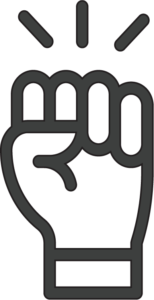 BE DETERMINED
BE DETERMINED
Be aggressive, but realistic with your targets. Work with passion, resolve, and grit. Always aim to over-deliver, rather than over-promise.
 BE RESOURCEFUL
BE RESOURCEFUL
Do more with less. Strive to use our resources to the maximum, while being fair to yourself, your team, and your clients.
 BE DILIGENT
BE DILIGENT
Cover all your bases. Always validate your assumptions before taking action. Grow through learning.
 BE COLLEGIAL
BE COLLEGIAL
Be cordial and help your colleagues, while questioning and challenging them. Avoid prodigious, office politics and ego battles at all cost.
 BE ACCOUNTABLE
BE ACCOUNTABLE
Deliver your commitments with excellence and on time. When you are accountable for your commitments, you earn trust from your colleagues and we all earn the trust of our clients.
 BE ORIGINAL
BE ORIGINAL
Voice your opinion when you have it. Show your original thoughts by taking initiatives and by providing constructive feedback.
 BE TRANSPARENT
BE TRANSPARENT
Be honest, concise, and direct with your communications. Inform your colleagues about both the GOOD and the BAD. Being transparent means being respectful of your coworkers’ time and effort.
 BE POSITIVE
BE POSITIVE
Take pride in your work. Celebrate achievements, learn from failures. Have fun and believe in your ability to change the world.
